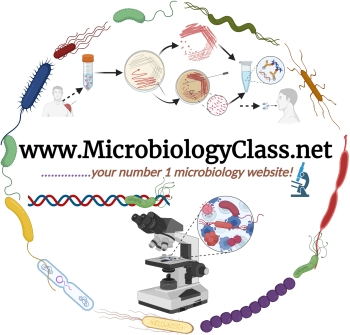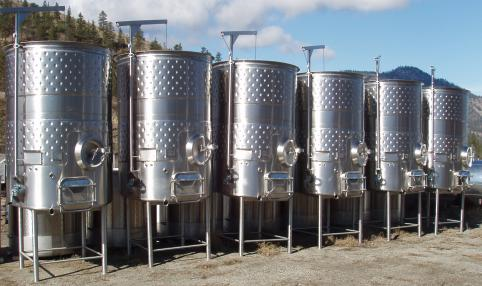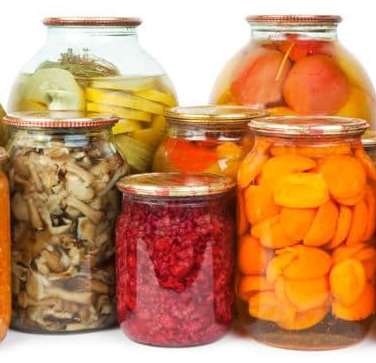Biotechnology is simply defined as the scientific manipulation of living organisms at the molecular genetics level to produce useful economic products and services that are of added-value to humanity. It is the science that puts microorganisms to work as well as other living things including plants and animal cells. The phrase biotechnology was originally coined by a Hungarian engineer, Karl Ereky in 1919 to mean the interaction of biology and human technology. Karl in 1919 proposed a time in science when the knowledge of biology will be used to transform raw materials (both organic and inorganic) into socially useful and acceptable products; and his projection as at the time actually worked out, and today biotechnology is used in countless number of productions and research facilities across the world. But according to the 1992 Rio Earth Summit Convention on Biological Diversity in Brazil (a convention dedicated to promoting sustainable development), biotechnology is defined as any technological application that uses biological systems (including microorganisms), living organisms or their derivatives thereof, to make or modify products and processes for specific use.
Biotechnology is the technology that depends solely and partly on biology particularly when applied in medicine, industry and in agriculture. According to Albert Sasson (1989), biotechnology is the application of scientific and engineering principles in the processing of raw materials by biological (e.g. microorganisms) agents to produce goods and services. Biotechnology is as old as humanity, and even though the term “biotechnology” was not in use as at the time, its principles were practiced since time immemorial. For example, the production of bread, milk and other beverages from fruits were all very much practiced in line with biotechnology principles. In the practice of biotechnology, the intricate workings of biological cells and their components are manipulated through genetic techniques to produce useful products and solve other practical problems. Biotechnology involves the use of biological organisms, systems and processes in the manufacturing and service industries to produce tangible products. Biotechnology plays an indispensable role in a wide range of fields including medicine, agriculture, manufacturing, engineering, food industries, chemical and pharmaceutical industries. In biotechnological processes, microorganisms, plants and animal cells and their products are manipulated at the genetic molecular level using various forms of technology to build new organisms or products that are of environmental, agricultural, industrial, pharmaceutical, or medical purposes.
Before the dawn of civilization, mankind have naively practiced and utilized the principles of biotechnology in the production of some of his foods and other services. Microbial activities have been exploited in the preparation of foods and beverages including cheese, bread, beer, wine and other diary and fermented food products. Some indigenous fermentation processes have also been used to produce foods and other fermented products including palm wine even without knowing the scientific knowledge behind the microbial action of such processes. All these are generally referred to as traditional biotechnology. Microbial/biological processes have been used by man for over 10,000 years to provide variety of products ranging from clothing to foods. In modern biotechnology, the cellular and biomolecular processes of microorganisms are manipulated at the genetic level to make useful products or solve practical problems in the health, environmental, agricultural or industrial processes.
The discovery, development and use/manipulation of some genetic tools including DNA, restriction endonucleases and the rest actually gave impetus to the surge and success of this all important field, modern biotechnology. Modern biotechnology is an incorporation of different technologies and biological processes of microorganisms (including other living organisms) to produce a variety of different products. Currently, there are over 300 biopharmaceutical products including drugs and vaccines undergoing clinical trials for the treatment of both infectious and non-infectious diseases. Some of the diseases being targeted by biotechnological drugs and vaccines include: diabetes, cancer, AIDS, Alzheimer’s disease and arthritis. More recent developed technologies in the biomedical sciences including those based on the use of recombinant DNA technology, monoclonal antibodies, bioinformatics, proteomics, genomics and cell culture techniques are employed in modern biotechnology. Modern biotechnology seeks to develop an entirely new industrial base that has not been previously exploited by man while drawing preferences from already available technologies and traditional biotechnology. In modern biotechnology, different specialties from different fields of endeavor are put together to harness the manufacturing potentials of living systems including microorganisms to enhance life for a sustainable development.
Current advances in biotechnological processes have the potential to assuage the present global food crises while ensuring food security and increase in agricultural production across the globe. Notwithstanding the many ethical, political and public issues surrounding the research and development (R&D) of biotechnological processes, modern biotechnology is promising in eradicating diseases while ensuring a better life for the whole of humanity through the production of desired health and food products. Governments of nations including research institutions and universities are directing resources and manpower towards strengthening their biotechnological base and know-how, and this has led to an increase in the number of biotechnological products and services that are now available in the market today. Research and development is still underway and intensified in most developed economies to release drugs and other therapeutics to tackle plethora of human diseases as well as produce food and sustain the environment.
References
Bains W (1998). Biotechnology: From A to Z. 2nd ed. Oxford University Press, New York, USA.
Bourgaize D, Jewell T.R and Buiser R.G (1999). Biotechnology: Demystifying the Concepts. Pearson Education, San Francisco, CA.
Brian Robert Shmaefsky (2006). Biotechnology 101. Greenwood Publishing Group, Inc, USA. Pp. 1-273.
Bushell M.E (1998). Application of the principles of industrial microbiology to biotechnology (ed. Wiseman, A.) Chapman and Hall, New York. Pp. 5–43.
Byong H. Lee (2015). Fundamentals of Food Biotechnology. Second edition. Wiley-Blackwell, New Jersey, United States.
Chrispeels M.J and Sadava D.E (2002). Plants, Genes, and Crop Biotechnology. 2nd edition. Jones and Bartlett Publishers, Sudbury, MA.
Clark D.P and Pazdernik N (2010). Biotechnology. First edition. Elsevier Science and Technology Books, Amsterdam, Netherlands.
Das H.K (2010). Textbook of Biotechnology. Fourth edition. Wiley edition. Wiley India Pvt, Ltd, New Delhi, India.
Dictionary of Microbiology and Molecular Biology, 3rd Edition. Paul Singleton and Diana Sainsbury. 2006, John Wiley & Sons Ltd. Canada.
Glick B.R and Pasternak J.J (2003). Molecular Biotechnology: Principles and Applications of Recombinant DNA. ASM Press, Washington DC, USA.
Godbey W.T (2014). An Introduction to Biotechnology. First edition. Woodhead Publishing, Cambridge, United Kingdom.
Jee C and Shagufta (2007). Environmental Biotechnology. APH Publishing Corporation, Darya Ganj, New Delhi, India.
Lee S.Y, Lee D.Y and Kim T.Y (2005). Systems biotechnology for strain improvement. TRENDS in Biotechnology, 23(7):349-356.
Discover more from Microbiology Class
Subscribe to get the latest posts sent to your email.





